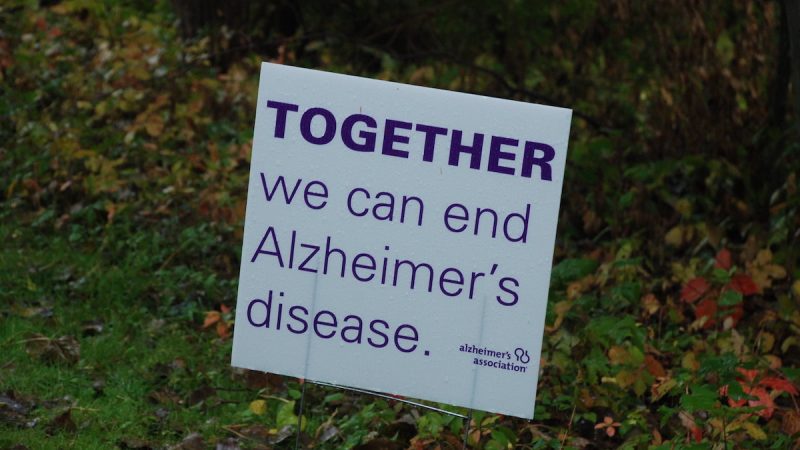Controversial New Alzheimer’s Drug Approved Despite Reservations
Follow via Flickr Link: https://www.flickr.com/photos/alzmglc/15311519476/in/photolist-pk2xi7-p5zz1T-pn36eW-pk2z4G-pn4Zzt-p5yHLJ-p5yCyQ-p5yy7H-p5yKrY-p5zBtP-pn2YxE-pn4BVM-p5ztkA-pmMonT-p5ziQo-bxQfpz-pmMxTM-p5zXeR-p5zbib-p5zQFk-pn3m45-pk2Tsf-p5zB8E-pn4N6g-4eGjGS-CFX1-pk2JQf-WfWjgu-pk2Lc3-3hQn2G-4kkzZx-6DojR2-51m44-7rJbFK-9YAmBr-fkWSC9-44Aksc-nSqng6-GAH7BD-j1M1Sk-gv1YhP-6Doi7x-3xK9k-6DoitF-dwaKm8-fkWSGw-6DoiYK-6DssxN-MhcFWN-o17RFw
The U.S. Food and Drug Administration has approved the first new drug for Alzheimer’s disease in 20 years, but some doctors, including one at UAB, warned patients’ families not to expect much from the drug any time soon.
The drug, aducanumab, is expected to help slow the progression of the disease, but not to improve current memory impairments, according to a release from the University of Alabama at Birmingham. The university’s Division of Memory Disorders and the Alzheimer’s Disease Center have been involved in clinical trials of aducanumab for the past five years.
“The approval of the first disease-modifying therapy is a milestone for our field and a result of years of intense research. However, it must be understood that [aducanumab] is not expected to restore memory or reverse the symptoms of Alzheimer’s disease,” said Dr. David Geldmacher, professor of neurology at UAB and clinical core director of the center. “Instead, it is expected to slow the worsening of the disease. [Aducanumab] is likely the beginning of a new era in treating AD, but not the end of the story.”
Geldmacher said it would be some time before the drug is widely available, not all patients will be eligible to receive it, and many patients, especially with advanced disease, are not likely to see improvement from it.
The FDA approved the drug despite opposition from an independent advisory committee and some Alzheimer’s experts who said there was not enough evidence the drug helps patients, according to several news reports, including from the Associated Press.
The FDA did require the drugmaker, Biogen, to conduct another study to determine whether it benefits patients, and it could pull the drug from the market if its effectiveness is not proven.
Editor’s Note: UAB holds WBHM’s broadcast license, but our news and business departments operate independently.
U.S. gave Ukraine and Russia June deadline to reach peace agreement, Zelenskyy says
"The Americans are proposing the parties end the war by the beginning of this summer," Zelenskyy said, speaking to reporters on Friday.
U.K. leader’s chief of staff quits over hiring of Epstein friend as U.S. ambassador
British Prime Minister Keir Starmer's chief of staff resigned Sunday over the furor surrounding the appointment of Peter Mandelson as U.K. ambassador to the U.S. despite his ties to Jeffrey Epstein.
Trump administration lauds plastic surgeons’ statement on trans surgery for minors
A patient who came to regret the top surgery she got as a teen won a $2 million malpractice suit. Then, the American Society of Plastic Surgeons clarified its position that surgery is not recommended for transgender minors.
What you should know about Bad Bunny’s Super Bowl halftime show
Will the Puerto Rican superstar bring out any special guests? Will there be controversy? Here's what you should know about what could be the most significant concert of the year.
Sunday Puzzle: -IUM Pandemonium
NPR's Ayesha Rascoe plays the puzzle with KPBS listener Anthony Baio and Weekend Edition Puzzlemaster Will Shortz.
Thailand counts votes in early election with 3 main parties vying for power
Vote counting was underway in Thailand's early general election on Sunday, seen as a three-way race among competing visions of progressive, populist and old-fashioned patronage politics.








